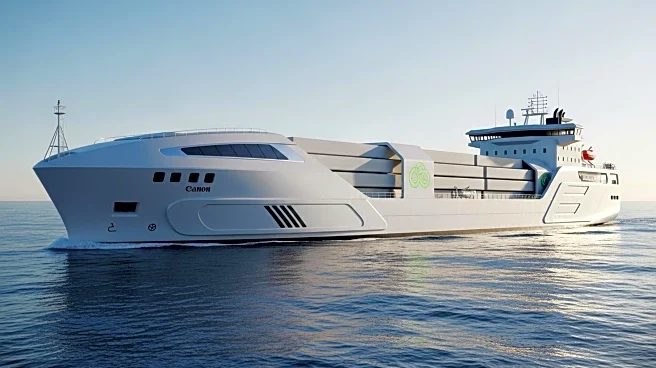What's Happening?
Maersk is advancing a comprehensive refit program for its chartered containership fleet, aiming to reduce fuel consumption and emissions. The initiative, which has reached its halfway point, involves over 1,500 projects across 200 vessels, with plans to complete an additional 1,000 projects by 2027. The refits include structural and technical upgrades such as replacing propellers and bulbous bows to improve hydrodynamic efficiency, and installing auxiliary engine waste heat recovery systems. These efforts are part of Maersk's strategy to enhance the competitiveness of its fleet while reducing its environmental impact.
Why It's Important?
This initiative is significant as it aligns with global efforts to reduce greenhouse gas emissions in the shipping industry, a major contributor to global pollution. By modernizing its fleet, Maersk not only aims to cut operational costs but also to meet stricter environmental regulations. The program reflects a broader industry trend towards sustainability, potentially influencing other shipping companies to adopt similar measures. The refits also promise long-term economic benefits for vessel owners, enhancing the value and efficiency of their assets.
What's Next?
Maersk plans to continue its refit program, with a target to reduce its absolute scope 1 greenhouse gas emissions by 35% by 2030. The company is also exploring the conversion of additional vessels to dual-fuel methanol capabilities, following the successful conversion of the Maersk Halifax. As the program progresses, it may prompt further collaborations between shipping companies and vessel owners to achieve shared sustainability goals.









